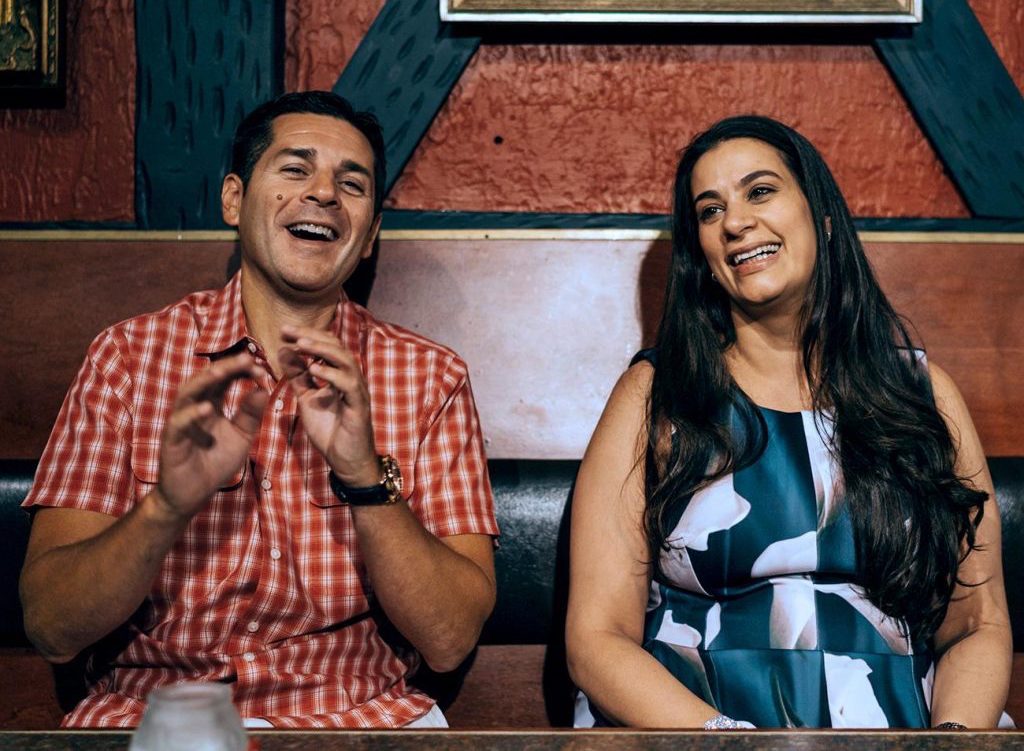Community Through Comedy: New York Arab American Comedy Festival Concludes at Kennedy Center
By • June 13, 2024 0 1059

By David Edwards
The New York Arab American Comedy Festival took to the road for its 20th anniversary this year. The festival kicked off in Boston, stopping in New York and San Francisco before ending its run at the Kennedy Center on June 8. Arab American comedians from New York City, Washington, and all over the nation took to the Terrace Theater’s stage for a night of personal, political, and communal comedy.
The festival, started in 2003 by Dean Obeidallah and Maysoon Zayid in response to the wave of anti-Arab hatred that spread across America after 9/11, aims to combat negative stereotypes and dehumanizing rhetoric with the unifying power of laughter. In 2003, Arab American comedians lacked representation on television, and so, according Obeidallah, those first shows became a place for Arab Americans “to hear about the experience that they were having, that they were not alone, and laugh as a release.”
Early on, the festival lacked enough standup comedians to fill the show, and included sketches put together by Arab American writers and actors. (One of whom, Obeidallah notes, was 19-year-old Ramy Youssef, now a Golden Globe-winning comedian, actor, director, and screenwriter.)
After 20 years, they are flush with Arab American comedic talent. “As time went on, more and more comics emerged, and a lot of them heard about the festival,” Obeidallah says. Now, audition tapes arrive from all over the world. Obeidallah and Zayid have succeeded in their mission of not just challenging hateful rhetoric with comedy but encouraging and supporting the Arab American comedy community.
That community was on full display at the Kennedy Center on June 8. After a short introduction by Obeidallah and Zayid, the show was opened by Go Remy, who was raised in McLean. Remy performed musical parodies, re-contextualizing popular songs to cover aspects of Arab American life and culture, including a rendition of Jason Mraz’s “I’m Yours” about an arranged marriage. His high energy and sharp punchlines began the night perfectly, priming the audience for the rest of the show.
After Remy finished his set, host Laura Laham took the stage to introduce herself and deliver a series of jokes about growing up in a family where she faced comparisons to an impossibly successful cousin. Laham managed to make a very personal set feel honest and relatable, all while peppering the crowd with constant punchlines. Laham filled the role of host well, effusing a confident and infectious energy. After working through her material, she brought up the next two comics: Majdy Fares and Rola Z. Both wove personal comedy with sharp observations about contemporary politics. Fares made the almost unbelievable transition from joking about the fashion changes brought on by fatherhood to discussing the changing demographics of pro-Palestine rallies, lauding new allies while also poking fun at them. D.C. comedian Rola Z brought local wit to her set, framing the difficulties of dating an Arlingtonian through clever political analogies that worked well in front of the politically attuned crowd.
The next act was a highlight from a night of highlights. Mohanad Elshieky, who has appeared on Conan and Comedy Central, delivered a gut busting set about awkward Uber rides and food deliveries. His jokes snowballed, continuously escalating their hilarity until the audience’s sides hurt. After Elshieky, Laham brought up Obeidallah and Zayid for their headlining sets. In honor of the 20th anniversary, Obeidallah recounted the festival’s history through a comedic narrative. One-part hilarious standup, one-part history, Obeidallah’s act captivated the audience one moment and broke the tension with laughter the next.
Zayid, the festival’s final comic, closed the show out masterfully. She connected an exploration of her personal identity and its many intersections with a powerful commitment to speaking her mind on various political fronts, calling for the protection of Palestinian civilians amidst ongoing violence and destruction, drawing laughter and applause in near equal measure.
The union between the personal, the communal and the political in Zayid’s set epitomizes the festival itself. The comedians’ individual talents serve to bring everyone in the theater closer together through shared laughter and then redirect that connection outwards, into the world — calling for more unity outside the theater as well as in.

